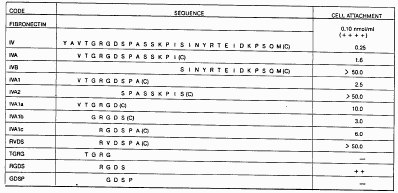Last week, the U.S. Supreme Court took a step toward accepting Merck’s petition of writ of certiorari by inviting the Solicitor General to file a brief expressing the views of the U.S. Government.
The appeal questions the limits of the safe harbor statute (35 USC 271(e)(1)) that permits drug manufactures to perform the experiments needed to obtain FDA approval of their drugs without incurring liability for patent infringement, even if their activities infringe other’s patent rights.
Some district courts had interpreted the act broadly to protect many types of infringing activities. However, the Federal Circuit, in Integra v. Merck, decided that safe harbor does not apply to early drug development activities. The case is now on appeal to the Supreme Court.
Background: Integra brought this patent infringement suit based on several patents relating to a short tri-peptide segment of fibronectin having the sequence Arg-Gly-Asp. The peptide sequence promotes cell adhesion to substrates in culture and in vivo.
